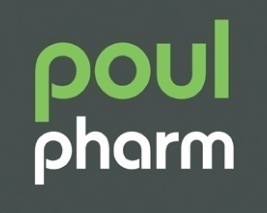- Home
- Services
- Laboratory
- Overview services
- Bacteriological research
BACTERIOLOGICAL RESEARCH
To reach a correct diagnosis, bacteriological examination can be an important tool to demonstrate the presence or absence of specific microorganisms. Moreover, the importance of this type of assays increases in the context of a responsible use of antibacterial agents in different animal species.
Poulpharm carries out a standard aerobic culture but can also detect specific pathogens. With a standard aerobic culture, the main bacteria that can be isolated are Eschericia coli, Enterococcus spp. and Staphylococcus spp.. Pathogens such as Ornithobacterium rhinotracheale, Pasteurella multocida, Erysipelothrix rhusiopathiae and Campylobacter spp. require selective culture media and dedicated incubation for their isolation. This can be specifically requested on the application form when any of these pathogens are suspected.
Poulpharm has been certified as an ISO 17025 accredited laboratory for carrying out the following analyses:
- Quantitative determination of total number of colonies using contact plates.
- Detection of Salmonella spp. according to ISO 6579-1 (2017) on animal manure and environmental samples from primary production.
The identification of bacterial pathogens is done using the Maldi-TOF system.
Process times may vary depending on the type of research.
In addition to bacteriological isolations, Poulpharm also carries out the following studies:
- Determination of the sensitivity using disk diffusion. Specific panels are available according to the poultry production (i.e. broilers, layers and breeders). Results are reported as Sensitive, Intermediate, Resistant.
- Determination of the sensitivity using the Sensititre system. Results are reported as minimum inhibitory concentration (MIC, μg/mL).
- Serotyping of E. coli, Streptococcus suis.
- Bacteriological counts on various matrices.
- Hygiene examination using contact plates (score colony forming units).
Do you need a different assay?
Click hereDo you need a different assay?
Click herePoulpharm Hungary Kft
1183, BudapestCsaba utca 30.bejárat a Nimród utca felőlAdószám: 27074402-2-06
